
Cochrane Russia has had great success translating and recording podcasts at Kazan Federal University. The initiative involves students, medical residents, and others interested in Cochrane evidence, and is le by Liliya Eugenevna Ziganshina, Director of Cochrane Russia, and Head of the Department of Basic and Clinical Pharmacology at Kazan Federal University. Liliya coordinates the volunteer Russian translation project with the help of Ekaterina Yudina, Russian translation manager. They took part in an interview about the podcast initiative – keep reading to learn more.
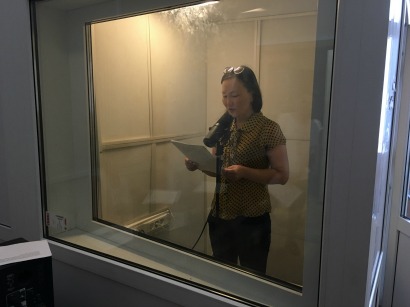
How did the idea of a podcast club start?
“Masters, residency, and PhD students have been meeting at a weekly journal club. When we realised we could translate Cochrane podcasts, we discussed this with these students and they wanted to get involved.”
What is the process for translating and recording a podcast?
“Initially, two students shared a podcast and worked together to translate it, however we have progressed since then, with students taking charge of their own. There are two rounds of editing to make sure the Russian translation can be easily understood. At the journal club we discussed the importance of emphasis and pronunciation when recording. The first series of podcasts were recorded on the students’ mobile phones. One of the students suggested asking if we could use the university’s media centre. Once a podcast has been translated and edited, the students go to the centre to use the recording equipment. The staff at the media centre have been very helpful, by recording the introduction and the ending of podcasts. They also feel like they belong, through contributing. ”
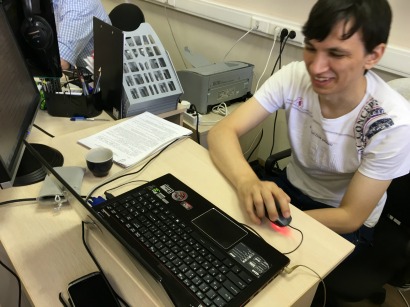
How many students are involved?
“There are 15 students in total. Interestingly, only six of these are native speakers of Russian, the others are from other countries, including a student from France. Special credit should go to one of our PhD students, Azat Gabdrakhmanov, who works very hard behind the scenes to put together soundtracks for the podcasts.”
Why do the students like it?
“They like seeing their pictures and voices on cochrane.org. They are very proud. They say it is very stimulating and educating. They respond quickly to emails asking for their pictures, and are efficient at doing the translation of the script. They find themselves belonging to a big organisation and are really proud of contributing. I think they are really happy about that. They have the chance to work together, and it is more interactive than translation, which is something young people enjoy. Doing podcasts is more unusual, for some of them it is the first time they have done something like that.”
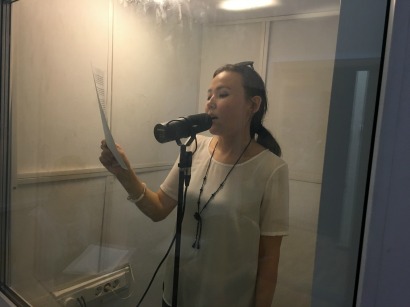
What’s the best part about podcast translation?
“The students’ favourite part of the process is being able to record the podcast in a professional studio, standing there in front of the microphone with proper equipment.”
How important is a podcast in disseminating Cochrane’s evidence?
“Last week I was invited to a major hospital in Kazan. I had not been there for quite some time. Of course I used the opportunity to tell them about Cochrane. I was amazed that they said they consult our Russian Plain Language Summaries, and listen to our podcasts when they are trying to make decisions. I was absolutely delighted because I had not visited for quite some time, so they found this information on their own. That was very rewarding to hear.”
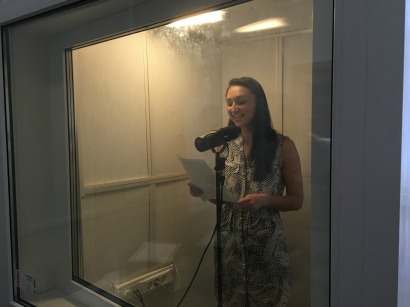
How important is it to transfer this knowledge?
“I think it is very important. Not only because we are part of Cochrane Russia but also for people to realise there is a source of independent health information. The most important thing is changing the way people think. Working with Cochrane teaches you to think differently. The more we do translations and disseminate in a variety of ways, through podcasts and plain language summaries, and social media, the more this helps.”
What would you say to other translation teams who might be interested in starting podcast translation?
“To those who haven’t started yet, they should join and enjoy it. I think when they deliver evidence through a podcast, they will feel that they belong.”
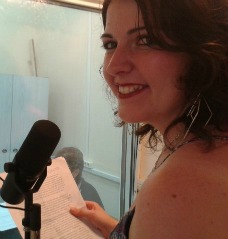
How would you like to take this forward?
“We hope we will be able to improve the quality of our podcasts. It is more difficult and time-consuming to edit a podcast than a Plain Language Summary. We hope professional language specialists will soon be able to join us, which will help with this issue.”

